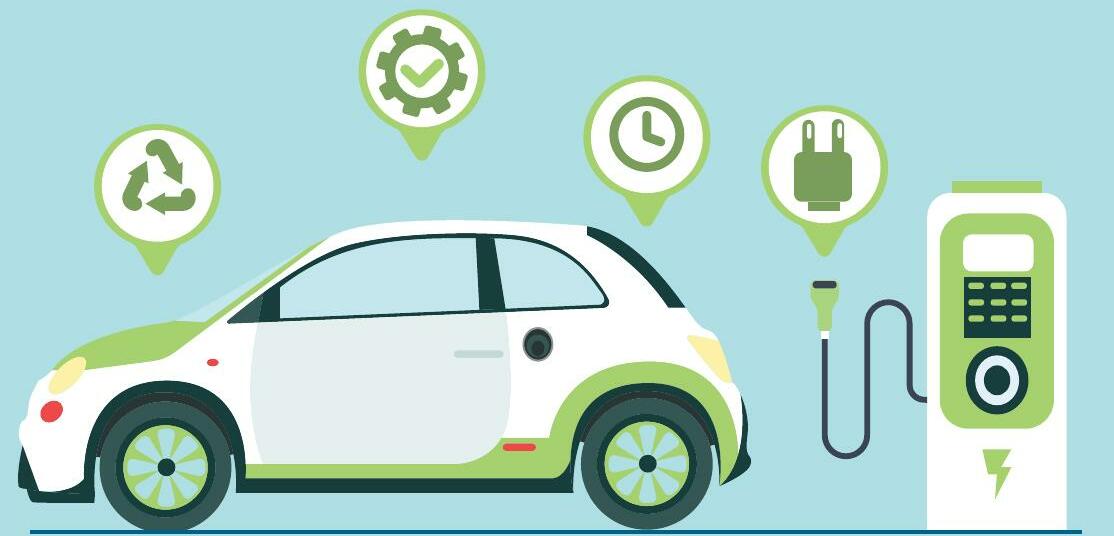
The country’s shift towards sustainable practices is primarily exemplified by the widespread adoption of Electric Vehicles (EVs). However, several critical obstacles continue to impede the widespread embrace of EVs. These challenges encompass limitations in battery technology, the inadequacy of charging infrastructure, a dearth of publicly accessible charging stations, suboptimal placement of charging infrastructure and the lack of coordination among charging station operators—all collectively hamper EV growth prospects.
India’s current EV trajectory
India’s shift from Internal Combustion Engine (ICE) vehicles to EVs is in its early stages, with EVs accounting for just 0.1 percent of total vehicle sales in the country. However, a significant push is for this transition to be completed by 2030. The government is actively encouraging automobile manufacturers to pivot towards EV production, aiming to save up to US$ 60 billion in oil expenditure, reduce emissions by 37 percent and decrease reliance on fuel imports. This shift safeguards against vulnerabilities associated with volatile crude oil prices and currency fluctuations.
The current limitations in battery capacity and the restricted driving range of EVs pose challenges to their broader adoption. The prevailing trend of continually adding vehicles reliant on expensive imported fuels is not sustainable, particularly in congested cities grappling with infrastructure constraints and severe air pollution. Consequently, the transition to electric mobility emerges as a promising global strategy for decarbonising the transportation sector.
The power of infrastructure
This story is from the Efficient Manufacturing - April 2024 Issue edition of EM - Efficient Manufacturing.
Start your 7-day Magzter GOLD free trial to access thousands of curated premium stories, and 9,000+ magazines and newspapers.
Already a subscriber ? Sign In
This story is from the Efficient Manufacturing - April 2024 Issue edition of EM - Efficient Manufacturing.
Start your 7-day Magzter GOLD free trial to access thousands of curated premium stories, and 9,000+ magazines and newspapers.
Already a subscriber? Sign In

High Performance Lubricants in the Wind Energy Sector
High-performance lubricants are transforming industrial efficiency by ensuring machinery reliability under extreme conditions. This article delves into their pivotal role in enhancing the performance, longevity, and sustainability of wind turbine gearboxes in the growing renewable energy sector.

"Smart Energy Management is important for a Sustainable Future"
Says Bharath Rnkawat, Founder & CEO, Enlog, in conversation with Kaushal Dighavkar. He shared insights on how Enlog's IoT and AI technologies are transforming energy usage across residential and commercial sectors.

"Leveraging Japnese Technology to Push India's EV Charging Infrastructure"
In conversation with Anushka Vani, Akihiro Ueda, CEO, Terra Charge who shared insights on the company's role in accelerating electric vehicle adoption, leveraging Japanese technology, and addressing key infrastructure challenges in the country.

The Role of AI and ML in Revolutionising Manufacturing
AI is transforming manufacturing, enhancing productivity and precision across areas like predictive maintenance and assembly line optimisation. This article delves into AI's revolutionary role in shaping smart manufacturing.

Embedded Systems - Serving as Catalysts for Change in Manufacturing
The evolution of manufacturing from artisan-led processes to tech-driven automation has redefined industry standards, boosting efficiency, precision, and sustainability. This article explores how ERP, IoT, and AI have transformed modern manufacturing, enabling smarter, agile operations in an increasingly competitive market.

ISCAR Is About to Change Metal Cutting...Again!
ISCAR is set to transform metal cutting once again with groundbreaking tools designed to push the boundaries of speed, precision, and efficiency. From advanced milling to high-performance drilling, these innovations promise to change machining like never before.

Ensuring Safety in Automotive Manufacturing
The rapid evolution of automotive manufacturing, driven by automation and the shift toward EVs, demands robust safety measures to address complex production challenges. This article explores how Pilz's advanced safety solutions enhance worker protection and operational efficiency, ensuring a secure future for the industry.

Strengthening India's HMV Sector through Advanced Fabrication Practices
The Heavy Motor Vehicle (HMV) industry is integral to India's economy, driving transportation and trade through a vast network. With rising demands for quality fabrication, maintaining stringent standards has become essential to ensure safety, performance, and sustainability in HMV manufacturing.

"Industry 4.0 and the Role of Generative AI"
In an interaction with Anushka Vani, Neil Barua, CEO of PTC Software, shared insights on how PTC is supporting manufacturers in navigating digital transformation and addressing the skill gap, all while overcoming challenges and seizing opportunities in Industry 4.0.

Innovation through indigenisation: Materials science is ushering in the future of aerospace and defence
This cover story explores how advancements in materials science are revolutionising India's aerospace and defence sectors, driven by government policies and domestic innovation. It delves into breakthroughs like advanced ceramics, composites, and nanotechnology, shaping the nation's self-reliance and global leadership ambitions.